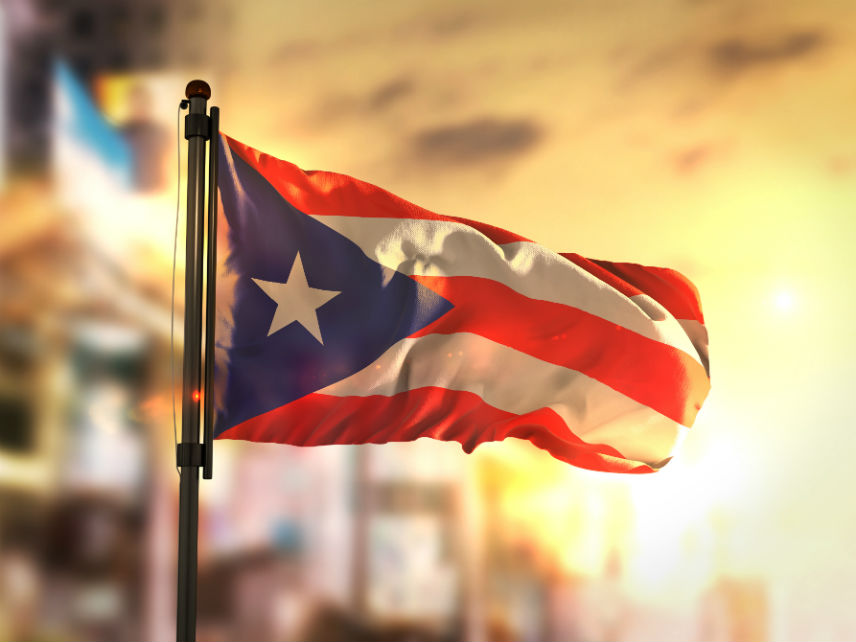President Trump's Personal Feelings Could Stand Between Puerto Rico and Statehood
Puerto Ricans are considered U.S. citizens, but many in the country argue that they lack adequate representation.

As it turns out, the fate of Puerto Rican statehood potentially rests on President Donald Trump's personal feelings. Trump butted heads with San Juan Mayor Carmen Yulín Cruz last year in the aftermath of Hurricane Maria. The president lashed out against Cruz after taking her comments about the United State's delayed response to Puerto Rico, which is under its federal jurisdiction, personally. The president also recently took issue with the official death toll on the island following the hurricane, publicly denying that nearly 3,000 people died in Puerto Rico in the six months following the hurricane. (The president maintained that the death toll was made up by his opponents in an effort to make him look bad.) The president's feelings about Puerto Rico and its leaders led him to verbally deny statehood for the territory.
"With the mayor of San Juan as bad as she is and as incompetent as she is, Puerto Rico shouldn't be talking about statehood until they get some people that really know what they're doing," he said in a Monday interview on Geraldo Rivera's "Geraldo in Cleveland." The sentiment drew sharp rebuke, including a tweet from Puerto Rican Governor Ricardo Rossello.
@POTUS said he is not in favor of statehood for the people of Puerto Rico based on a personal feud with a local mayor. This is an insensitive, disrespectful comment to over 3 million Americans who live in the American territory of #PuertoRico.
— Ricardo Rossello (@ricardorossello) September 24, 2018
In two recent non-binding referendums on the island, a majority of the votes supported Puerto Rican statehood. Others were either comfortable with the current arrangement or supported a sovereign state of their own. While Puerto Ricans are considered U.S. citizens, those who support statehood argue that their representation in the federal government is inadequate. Citizens cannot vote in presidential and congressional elections. Puerto Ricans also have a representative of sorts in the U.S. Congress, but that is a non-voting member. Despite this, the U.S. government maintains control over various functions of Puerto Rico's government, including trade, military affairs, and federal taxation.
The U.S. Congress is ultimately responsible for deciding Puerto Rico's statehood. According to recent voting history, Puerto Ricans would likely support more Democratic candidates than Republican candidates. Given that, plus Trump's recent statements, it is difficult to imagine a Republican-led Congress voting in favor of statehood for Puerto Rico anytime soon.
Bonus link: Statehood in Puerto Rico should also come with free market principles.


Show Comments (154)